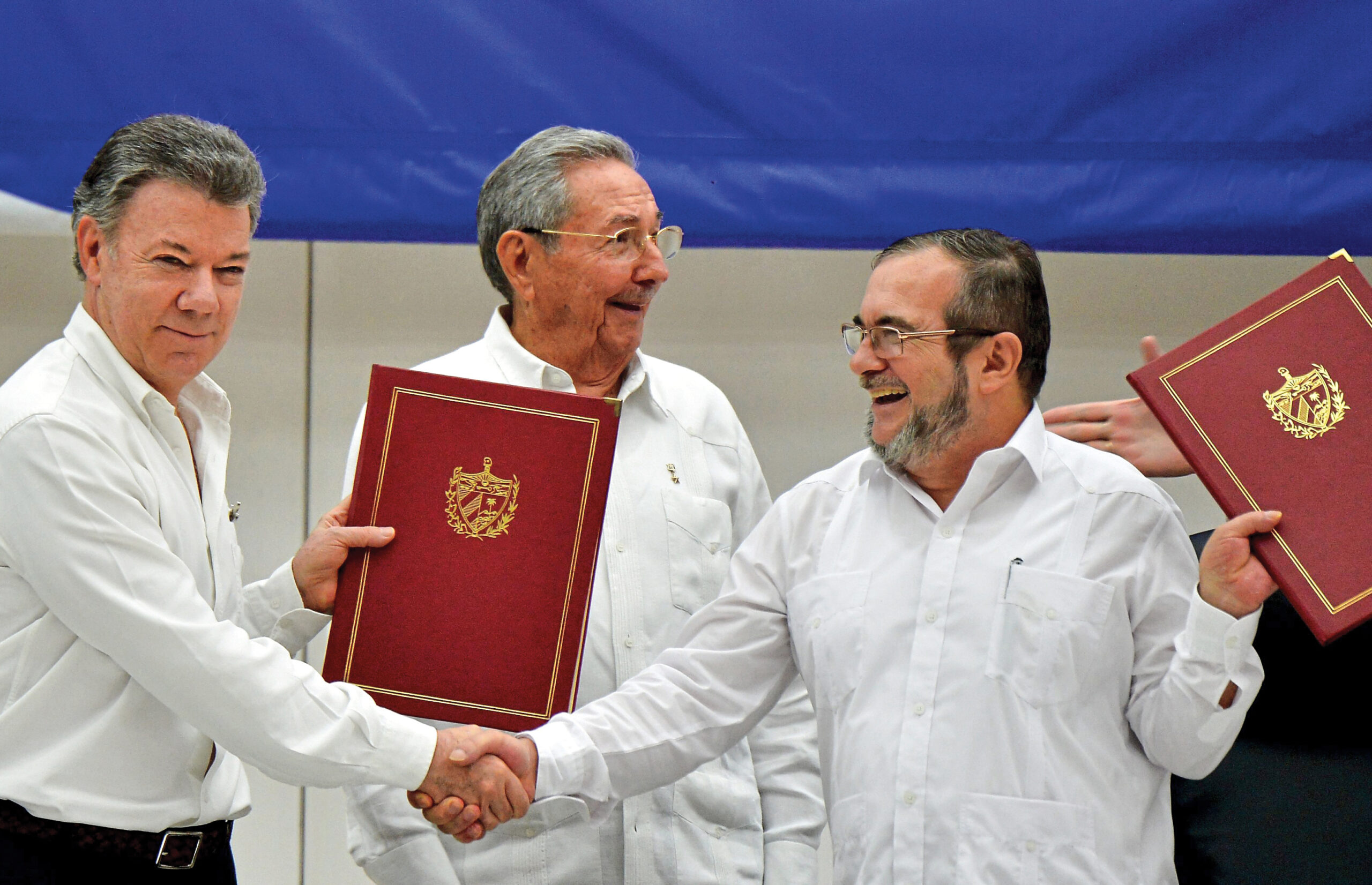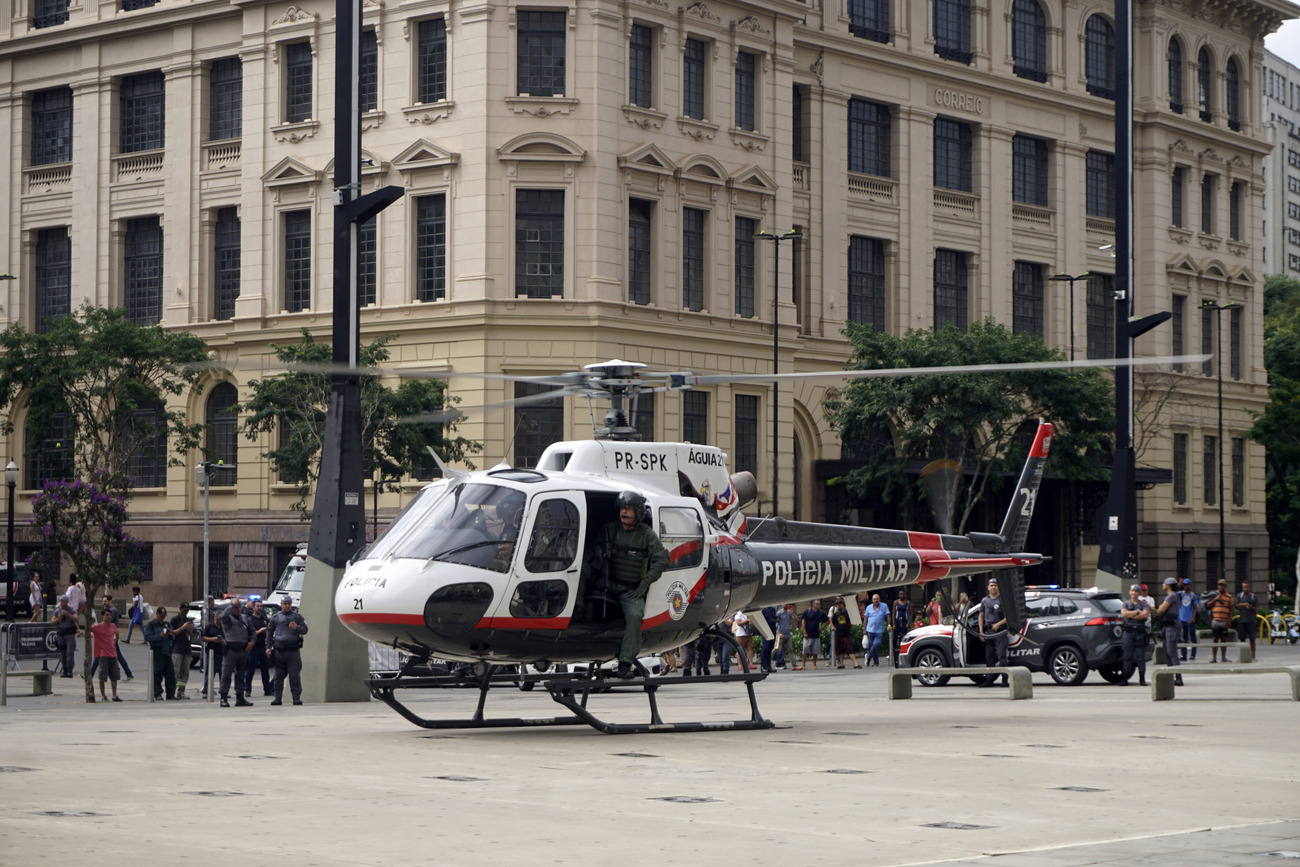Congressional Testimony: The International Exploitation of Drug Wars and What We Can Do About It
Congressional Testimony: The International Exploitation of Drug Wars and What We Can Do About It
In testimony to the U.S. House's Committee on Foreign Affairs, COA Vice President Eric Farnsworth discussed the worrying growth of violence in Latin America stemming from the drug trade. He recommended continued support of efforts to strengthen democracy and reduce U.S. drug use.
HOUSE COMMITTEE ON FOREIGN AFFAIRS
SUBCOMMITTEE ON OVERSIGHT AND INVESTIGATIONS
OCTOBER 12, 2011
ERIC FARNSWORTH
VICE PRESIDENT
Good morning, Mr. Chairman and members of the Subcommittee. Thank you for the invitation to appear before you today. It is a privilege to be with you to discuss a topic of such timeliness and importance.
Yesterday’s dramatic news notwithstanding, Latin America is a region transformed from Cold War days, when politically-motivated violence led to untold pain and suffering across the hemisphere. Out of that difficult period, however, came a hemispheric commitment to democracy, a commitment that was formalized exactly 10 years ago last month with the signing of the Inter-American Democratic Charter in Lima, Peru.
The hemispheric commitment to democracy is a recognition that strong democracies, with strong institutions, provide the fairest means of governance. As a result, they offer the best inoculation to Latin American societies against the scourge of political violence, much of which flared in previous decades as a result of the perception that authoritarian political and economic systems were exploitative and unfair.
At the same time, however, nations where democratic institutions and state control are weak or threatened can become incubators for criminal activities, creating permissive environments that can be exploited by those intent on pursuing extra-legal activities.
An example of such a scenario is the tri-border region of South America, a somewhat lawless region joining Argentina, Brazil, and Paraguay that has been linked to fund-raising for extra-legal global actors including Hezbollah. Criminal enterprises—primarily smuggling operations—provide ill-gotten gains that can then be used to fund terrorist activities abroad.
Elsewhere in Latin America, the situation is less clear-cut. For many years, the Government of Colombia exercised only cursory control, if any, over much of the country. This lack of state control was exploited by the FARC, ELN, and other guerrilla movements, allowing them the freedom to build contacts with other extra-regional revolutionary groups including Spain’s ETA and Cuba. As the Government of Colombia has effectively taken the fight to the guerrillas over the past decade, political violence has been dramatically reduced and the guerrillas have increasingly sought safe haven in neighboring countries. They have also turned into criminal enterprises, making common cause with drug traffickers as a means of survival. In the case of Colombia, links between the two came as the political insurgency was effectively degraded.
There is no doubt that permissive environments can attract global mischief-makers, and that the drugs trade, by undermining the effectiveness of, and public confidence in, democratic institutions, can lead in some ways to such permissive environments. Central America is perhaps the best example in this regard. The region has become one of the most dangerous on earth, according to a recent Senate report, more violent than Mexico. After a generation of bipartisan efforts to midwife democracy in Central America, in which you, Mr. Chairman, were directly involved, the institutions of these mostly young, fragile democracies are being hollowed out, corrupted by the drug traffickers and their allies. Impunity is rampant, and the police and security forces in several countries have been penetrated by the drug gangs. Violence is a daily reality for far too many citizens of the Central American region. We should be working with these nations, with purpose and resolve, to ensure that the inclination to politically-motivated violence does not arise.
So, too, with Mexico. As in Central America, at this point we do not see a pattern of politically-motivated violence engendered by the cartels; rather, we see the cartels fighting each other, and the Mexican security forces, to maintain control over lucrative drug transit corridors into the United States. The cartels prefer either a weak state or a state that turns a blind eye to their activities; they do not appear to want to overthrow the state at this point nor are they using violence to support one political actor or party over another.
Nonetheless, their activities are undermining the institutions of the state, both in Mexico and in neighboring countries, particularly Guatemala which has become a safe cross-border sanctuary for Mexican drug cartels. As well, certain drug trafficking groups in Mexico, in particular the Zetas, have served as guns for hire with others involved in the drugs trade. As Judge Poe said in his opening comments, and I agree, they are in it not for political gain but for the money. To the extent they are willing to offer their services and firepower not just to other drug traffickers but also to outside groups including the Al Quds Force, as has been alleged, this would be a new development and a cause for concern.
With this in mind, it is vital that we work in tandem with democratically-elected leaders across the region to address these issues and help to ensure that criminal activities do not blossom into politically-motivated efforts. This would include an emphasis on vetting and professionalization of police and security forces and a focus on the entire administration of justice. It would also include enhanced intelligence sharing and cooperation. I would argue, in fact, that such cooperation with our Mexican partners was in part responsible for success in taking down yesterday’s alleged Iranian plot.
At the same time, we can do a better job in this country to reduce the demand for drugs which is driving much of the insecurity impacting the region. For example, we should re-stigmatize illegal drug use by linking it publicly to death and destruction in Mexico and Central America, much as the blood diamond and conflict minerals campaigns have effectively done in parts of Africa. A renewed public campaign, including new-media which potentially reaches more of the target audience, would be an important place to begin.
We can also think creatively about ways to support democratic allies in our common fight by considering the transfer of excess equipment, as appropriate, from the downsizing effort in Iraq that is now underway. In particular, mobility and communications equipment would be useful for a region with vast un-policed and under-resourced areas. At the same time, I believe, we must also do a better job working to prevent the supply of automatic guns and other weaponry to the region. Otherwise, criminals will continue to have access to firepower that can challenge the ability of the state to control its own territory, one of the key indicators of a failing state and a means through which politically-motivated ends can take root.
For the most part, drug traffickers and others involved in illegal activities prefer weak states which allow them to conduct their affairs unmolested. They do not seek to overthrow the states. Nonetheless, by their destabilizing presence and ability to generate large sums of untraceable cash resources, they do have the potential of supporting such groups to the extent such groups may seek to find common cause over time. And, as we saw just yesterday, they also have the potential to be used as hired muscle by those with extra-regional connections. In this regard, the best antidote remains: full cooperation with Latin American nations as they consolidate and build upon the democratic gains of the past.
Mr. Chairman, thank you again for the opportunity to appear before you today.








